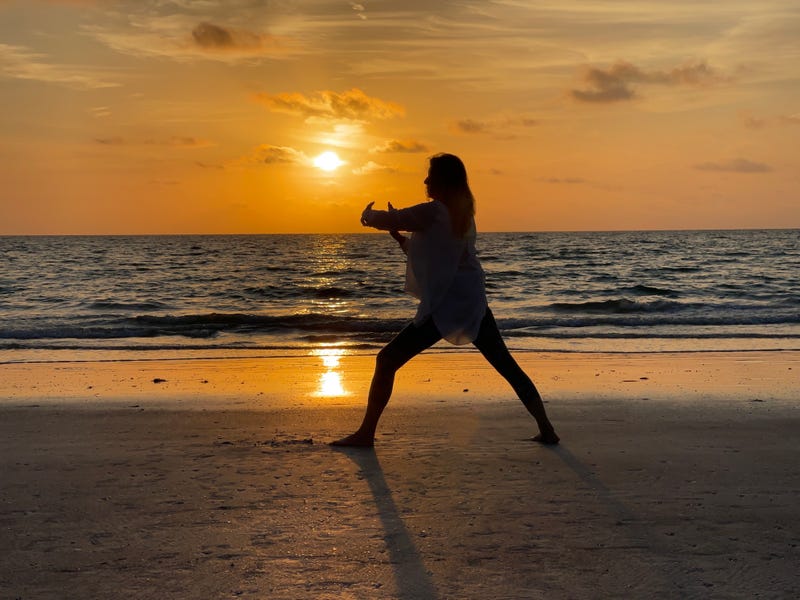
Tai chi, a form of martial arts developed in China thousands of years ago, has plenty of health benefits. Researchers recently uncovered a new one: protection against dementia.
A study published Oct. 31 in the Annals of Medicine journal found that semiweekly hour-long tai chi sessions were associated with an increase of 1.5 points on the Montreal Cognitive Assessment, a 10-minute test that measures cognitive function. This research includes data from more than 300 participants – all older adults with “self-reported memory decline or concern and a Clinical Dementia Rating (CDR) global score of 0.5 or lower at baseline.”
Participants were split into three groups. One group practiced a type of tai chi called cognitively enhanced tai ji quan, one practiced standard tai ji quan and one did stretch exercises. They all participated in the exercises via video conferencing for 24 weeks.
“Cognitively enhanced tai ji quan outperformed standard tai ji quan and stretching with a greater improvement in MoCA score,” according to the study.
Per the Tai Chi for Health Institute, tai chi is one of the major branches of traditional Chinese martial arts and it is also known as Shadow Boxing. The Book of Changes from the Zhou Dynasty is were the first written reference to tai chi appeared, and it explained that “in all changes exists tai chi, which causes the two opposites in everything.”
It is based on Taoist principles that stress the natural balance of all things.
“You don’t need to subscribe to or learn much about tai chi’s roots in Chinese philosophy to enjoy its health benefits, but these concepts can help make sense of its approach,” said Harvard Health Publishing. “Qi – an energy force thought to flow through the body; tai chi is said to unblock and encourage the proper flow of qi. Yin and yang – opposing elements thought to make up the universe that need to be kept in harmony. Tai chi is said to promote this balance.”
In general, tai chi is a low-impact, slow motion exercise, Harvard said.
“The movements are usually circular and never forced, the muscles are relaxed rather than tensed, the joints are not fully extended or bent, and connective tissues are not stretched,” it explained. “Tai chi can be easily adapted for anyone, from the most fit to people confined to wheelchairs or recovering from surgery.”
By 2021, a meta-analysis of 20 studies on tai chi and cognition already linked the martial art to improved cognitive function. According to the new study, cognitively enhanced tai ji quan is even more beneficial.
Dr. Elizabeth Eckstrom, lead author of the study, said that regularly doing tai chi two to three days per week can stave off years of cognitive decline, according to NPR.
“If you’re able to keep doing [tai chi] two or three days a week on a routine basis, you’re going to get extra years before you hit that decline into dementia,” she said.
In addition to its cognitive benefits, studies have also shown that tai chi can also prevent falls in older people and those with Parkinson’s Disease, help those who have experienced strokes, help reduce pain for people with arthritis and more, according to the National Center for Complementary and Integrative Health.
